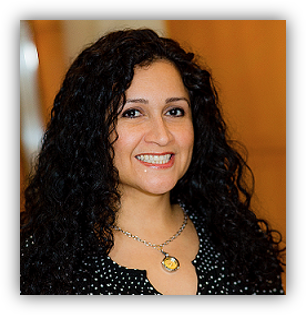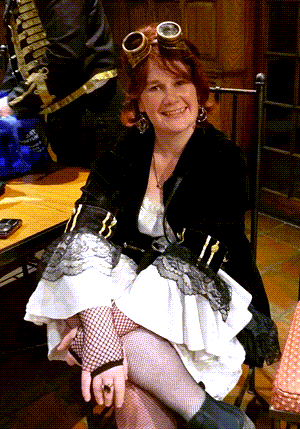Family Caregiver Content and Curriculum Development
Family Caregiver Content and Curriculum Development
Looking to spruce up your aging or dementia care newsletter or blog? Or, perhaps you hope to develop curriculum, training modules, or other educational materials? Whatever the writing need, Kapok is here to help.
Kapok is powerfully placed with two expert authors in the field of caregiving and aging. Both have lived experience of many challenges that caregivers face, including the overwhelm and intense workload of a caregiver and the practical and emotional complexities that come with a dementia diagnosis.
Read on to learn more about our writers, our expertise, and what we offer.
Areas of Expertise
Dementia and Dementia Care
Dementia adds a layer of complexity and intensity to caregiving, where the very person you’re caring for seems to shift and change as the condition progresses. The unpredictable nature of dementia adds further difficulties and caregivers need to regularly learn new approaches and adapt their techniques.
The practical side of dementia care alone is exhausting, but that’s not the whole story. There are also huge emotional impacts, plus the need to make challenging decisions about external support and memory care facilities. How do caregivers best protect loved ones who can no longer understand the world around them?
Our two authors have both researched and written extensively on this topic. It also has strong personal significance to Angelica, who is now certified as a Dementia Care Practitioner.
Practical Caregiver Advice and Support
Much of our content focuses on providing practical support and advice for caregivers. This involves digging into specific challenges, like how to deal with incontinence (including incontinence with dementia) and what to do when seniors struggle to stand up from sitting.
We have also regularly delved into food-related topics, offering new recipes and ideas for seniors and caregivers. This has included discussions on the pros and cons of meal shakes, plus ways to make meals easier for overwhelmed caregivers.
How Caregivers Can Support Themselves
Most caregivers know that self-care is essential for providing high-quality long-term support. Yet, doing this in practice is often challenging, if not almost impossible. In our content, we talk about some of the barriers to self-care and practical approaches that caregivers can take, ones that actually work.
We have also highlighted the idea of a capacity model, where it’s crucial for caregivers to care for themselves in small ways early on, as doing so is more powerful and ensures they have capacity left if a crisis hits. Other important and related topics have included resilience and self-compassion.
Navigating Difficult Parents and Relationships
Relationships are a large and sometimes overwhelming aspect of caregiving. This includes the relationship between aging parents and their children, and between adult siblings. Such relationships are often complex, with differences in values, perspectives, plus underlying hurts and resentments from childhood.
We have written about such relationships from multiple perspectives, including setting boundaries, having difficult conversations, dealing with stubborn parents, and even whether adult children can refuse to provide care.
The Difficult Decisions of Aging and Caregiving
The processes of aging and caregiving both involve many difficult conversations and decisions. This includes decisions about where the senior will live, when its time for assisted living, when to focus on treatment and when to focus on comfort care, and a variety of other issues.
We’ve tackled many such issues through the blog at Kapok. In doing so, we’ve focused on providing an informative and balanced perspective. The goal isn’t to tell caregivers what they should do, but to help them understand some of the complexities at play. After all, each caregiving situation is unique and has its own best approaches.
End-of-Life Care, Questions, and Emotions
Death can be a scary topic, one that many people avoid talking about. Yet, conversations about death can be surprisingly powerful and help people to make crucial decisions about end-of-life care.
We’ve covered this topic from multiple angles, including considering Advanced Care Planning documents, looking at the way dementia can impact the end-of-life journey, and the potential role of a death doula. We've also discussed grief, including how caregivers may experience anticipatory grief while the care recipient is still alive.
Mental Health and Emotional Challenges of Caregiving
We also talk extensively about mental health. This includes mental health issues like depression and anxiety, as well as how caregivers can keep themselves sane and functional. This field is one of Cassie's personal passions, which she writes about extensively for Kapok and on her own personal blog.
Our Writers
Angelica Herrera-Venson (DrPH, MPH)
Angelica Herrera-Venson has more than two decades of experience in the field of aging and diverse communities. In that time, she has worked in multiple distinguished professional roles, including with the National Council of Aging, and has published many academic papers that relate to aspects of aging or caregiving that you can find here or here.
During her time in academia, she completed an NIH/NIMH Post-doctoral Fellowship in Geriatric Psychiatry at the University of California, San Diego / Stein Institute Research on Aging, as well as a Health and Aging Policy Fellowship in Washington D.C. in the U.S. Department of Health and Human Services. She has recently broadened her expertise into the fields of end-of-life and dementia care, by completing training as an End-of-Life Doula with INELDA and becoming a Certified Dementia Practitioner.
In late 2014, she developed Kapok Aging and Caregiver Resources, which currently hosts more than 700 articles on aging and caregiving (most of which were written in-house). Kapok is a passion project that has provided Angelica with the chance to connect with caregivers from around the world, to share advice, and provide support.
Angelica’s entry into the field of aging was originally inspired by watching her parents and family members struggling to navigate the fields of social services and health as they aged. Dementia and end-of-life have now become extremely important additions, partly inspired by her father’s journey and the challenges of finding high-quality supportive dementia care.
Angelica is also passionate about supporting BIPOC communities and appreciates that cultural differences and systemic inequalities can make it harder for seniors and caregivers to find the support they need. As a Kellogg Health Scholar in Health Disparities, she expanded on this work through research on long-term care, dementia, diabetes care, caregiving, and aging. She believes that much more support and resources are needed for caregivers from all walks of life, as caregivers provide such a crucial and often overlooked role.

Cassie Greenfield (BSc, MSc)
Cassie has had a lifelong passion for writing, which she has honed through her BSc and MSc degrees, plus more than 20 years of writing books, content, articles, and more. She also has a background in website creation and SEO, allowing her to craft articles that are attractive to both readers and search engines, ones that continue to be unique and compelling despite the growth of AI-based tools.
Cassie’s personal passions include mental health, neurodiversity, and the way environment shapes the experiences of individuals and communities. She is a strong advocate for compassion and support, believing that people face many hidden challenges, ones that require services and support – not judgment.
She has been writing on caregiving, aging, and mental health for the past 10 years. For some of that time, she was a caregiver herself, giving her first-hand experience of the overwhelming nature of the role, the challenges of meeting one’s own needs, and also the surprising joys and beauty that can emerge. Her caregiving role ended with the death of her partner. That challenging experience provided a heartfelt new understanding on the nature of grief and how it intersects with caregiving.

Contact Us
To get an estimate on your project, please send Cassie an email. In your request, include:
We charge per deliverable/product. Additionally, a 25% deposit is required before beginning your project. If you feel your project warrants an exception, please explain.
We consider the following when providing a fair estimate:
